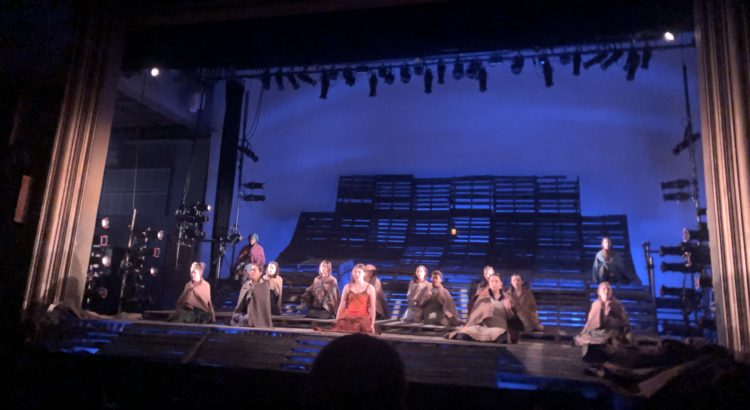The lead has an amazingly strong voice, full and deep and unquestionable. All the women do, unfaltering in their convictions. It’s such a weird quality for these women to have, given that all but a few are totally accepting of strict gender roles and woman’s mere purposes. Still, when together, they put an unwavering voice to what they think, even when their opinions reinforce structures that force them to compete with other women, to s tay trapped under man’s thumb. The women speak in extremes, graphically referencing the terrible pains of pregnancy and raising a child, then reassure themselves that this is some kind of gift to them. How quickly they flip from horror to ecstasy here is almost comical.
tay trapped under man’s thumb. The women speak in extremes, graphically referencing the terrible pains of pregnancy and raising a child, then reassure themselves that this is some kind of gift to them. How quickly they flip from horror to ecstasy here is almost comical.
I saw it as Federico García Lorca, the playwright, reversing feminist theory in order to point out the ridiculousness of misogynistic society’s values. If this was his vision, it’s a commentary well before its time. This guess seems likely, given my research on the man. Since his youth, he was an artist, and was until his probable murder by Fascist forces in 1936. He traveled widely and made friends in high places, joining an artist group called Generación del 27, of which the great Salvador Dalí was also a member. Given his enlightened lifestyle, he was surely unbound by overly-structured concepts of gender like the ones explored in Yerma. His work with the famed surrealist was an obvious influence in the visceral language and design in this drama. Its modern iterations like this production follow those roots with beautifully disconcerting set, lighting, and costume design.
Most interesting to me was the background (and often foreground) presence of the gaggle of mothers. There was a lot of complexity in their mixing of being threatening while caring (however genuinely is unclear), passive while bubbling with activity. Their ideologies are cult-like, their group singing more like a chant. They’re representative of the ever-present, stifling cage that gender expectations create for women. Maybe they’re not always vocal, but their eyes are watching.
The singing was beautiful, both the Spanish and English, though the Spanish seemed to make the theatre more silent as we all sat rapt. It could be a little pitchy at times, but this is understandable given the minimal or complete absence of instrumentals. Watching the stage lights reflect off a soloist’s focused eyes reminded me of a song off an old Tracy Chapman tape my mom used to have–“Behind the Wall.” Singing alone is terrifying despite how powerful it is, making it the perfect medium for many of the scenes in this production.
There are a million more qualities of this show I could talk about. I’m not a frequent theatre-goer; it takes a specific type of person to really be into drama, and I am not that. But when I watch a play that’s good, I become attached to it. Yerma and all the actors and crew involved in this production are now a part of my heart.



